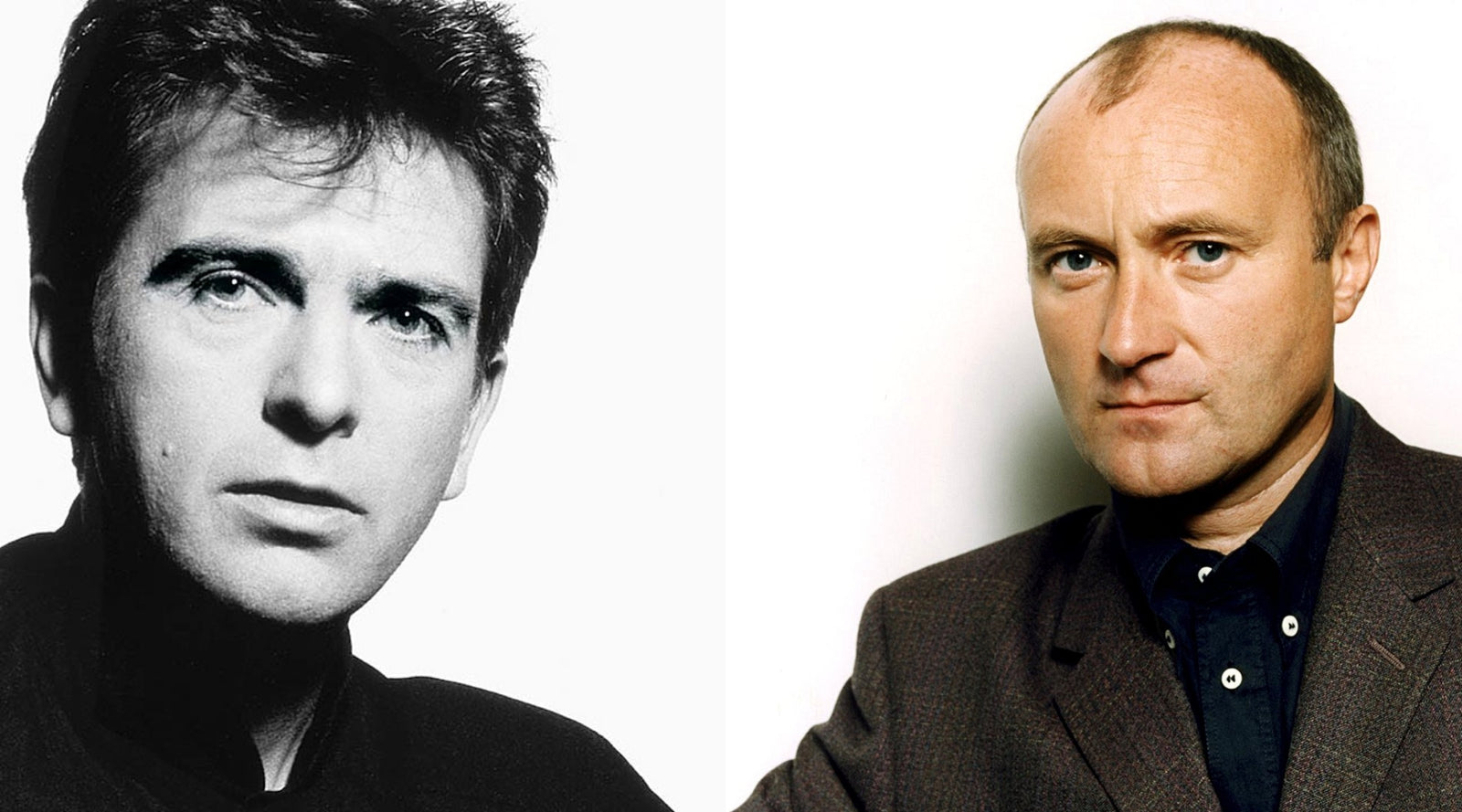Genesis: Peter Gabriel vs. Phil Collins

For many prog-rock aficionados, August 15th 1975 was the day that Genesis died. On that date, after weeks of speculation, the band announced that Peter Gabriel had left their ranks.
According to a record company spokesperson, Gabriel wanted to explore "other literary and experimental interests outside of music.” In a subsequent statement to the British music press titled, “Out, Angels Out” however, Gabriel explained that he was disillusioned with the music industry.
That disillusionment didn’t last for long. In 1977, he released his first eponymous album to critical acclaim; the launch of a successful solo career that continues to this day.
Genesis also bounced back. While the music press assumed that Gabriel’s departure was the death knell for the group, they had other ideas. As a publicist told Rock Scene at the time, "the boys are at present looking for a new singer to replace Gabriel and, in fact, they already have one idea very much in mind.”
That one idea, it later transpired, was promoting drummer Phil Collins to the role of frontman. Collins hadn’t initially wanted to take over as a permanent replacement and, when band entered the studio to record their first post-Gabriel record, Collins’ plan was to write the vocal parts and then teach them to a new singer. But, after the band’s search to find a suitable candidate failed, and Collins’ reluctant studio performance of the track ‘Squonk’ impressed his band mates, the decision was made.
The resulting album, 1976’s “A Trick of the Tail”, was a critical and commercial success and raised the band’s profile in the US.
“Trick…” and its follow-up, 1977’s, “Wind & Wuthering” continued the proggy trend of Genesis’ Gabriel years. But, with the departure of guitarist Steve Hackett and the release of “… And Then There Were Three…” in 1978, the band’s sound morphed dramatically. Responding to the short and concise song lengths of the punk and new wave movements, “…And Then There Were Three…” was bereft of ten-minute epics or song-suites that filled a side of vinyl.
Speaking to Melody Maker in 1978, Collins maintained that Genesis weren’t striving to be a “singles band” and that, in spite of its shortened length; their material remained "fundamentally the same." But many who heard the record’s lead single, “Follow You Follow Me”, were quick to disagree. It was slower, more sentimental, and more unashamedly commercial than anything Genesis had ever produced. And deliberately so: the song was self-consciously written to expand the band’s fan base.
It worked.
Big Time.
“Follow You Follow Me” became Genesis’ first worldwide pop success. More than that, it defined the band’s approach for the following decade. As the ‘70s turned to the ‘80s, the Collins-led Genesis doubled down on the pop-rock hits. As a result, records like “Duke” (1980), “Abacab” (1981) and “Invisible Touch” went multi-platinum and propelled the group to mega-stardom.
But, as Genesis transitioned into a stadium-filling pop-rock mainstay, there were growing voices of dissent from the fans that cherished their progressive material. Accusations that Genesis had abandoned their roots, or as Rolling Stone’s J. D. Considine put it, become “easy-listening lightweights” rang louder as the decade went on.
Before too long, there was a schism in the band’s fanbase. As rock critic Colin Maguire noted, on one side were the Collins detractors who claimed "[Genesis] sold out and became too corporate when Collins stepped into the spotlight." On the other were those who argued that “the [prog-heavy] Gabriel years were boring and hard to stomach.”
Today, those factions remain. As Ultimate Classic Rock put it, “there are few groups in the classic-rock canon with a more divisive discography than Genesis... good luck finding anybody out there who's equally enamoured of both sides of the band's story.”
In that sense, Genesis is a strange case in rock history. Put two die-hard Genesis fans in a room together and it’s entirely possible that they won’t see eye-to-eye on anything. It’s almost like they’re fans of a different band.
But what do you, the Thalia faithful make of all of this? Where do you stand on the Gabriel vs. Collins debate? Are you beholden to Genesis’s prog roots? Do you champion their more commercial ‘80s output? Or are you part of the rare breed that holds both sides of the band in equal stead?
Let us know your thoughts below, and share your Genesis memories with us!





















